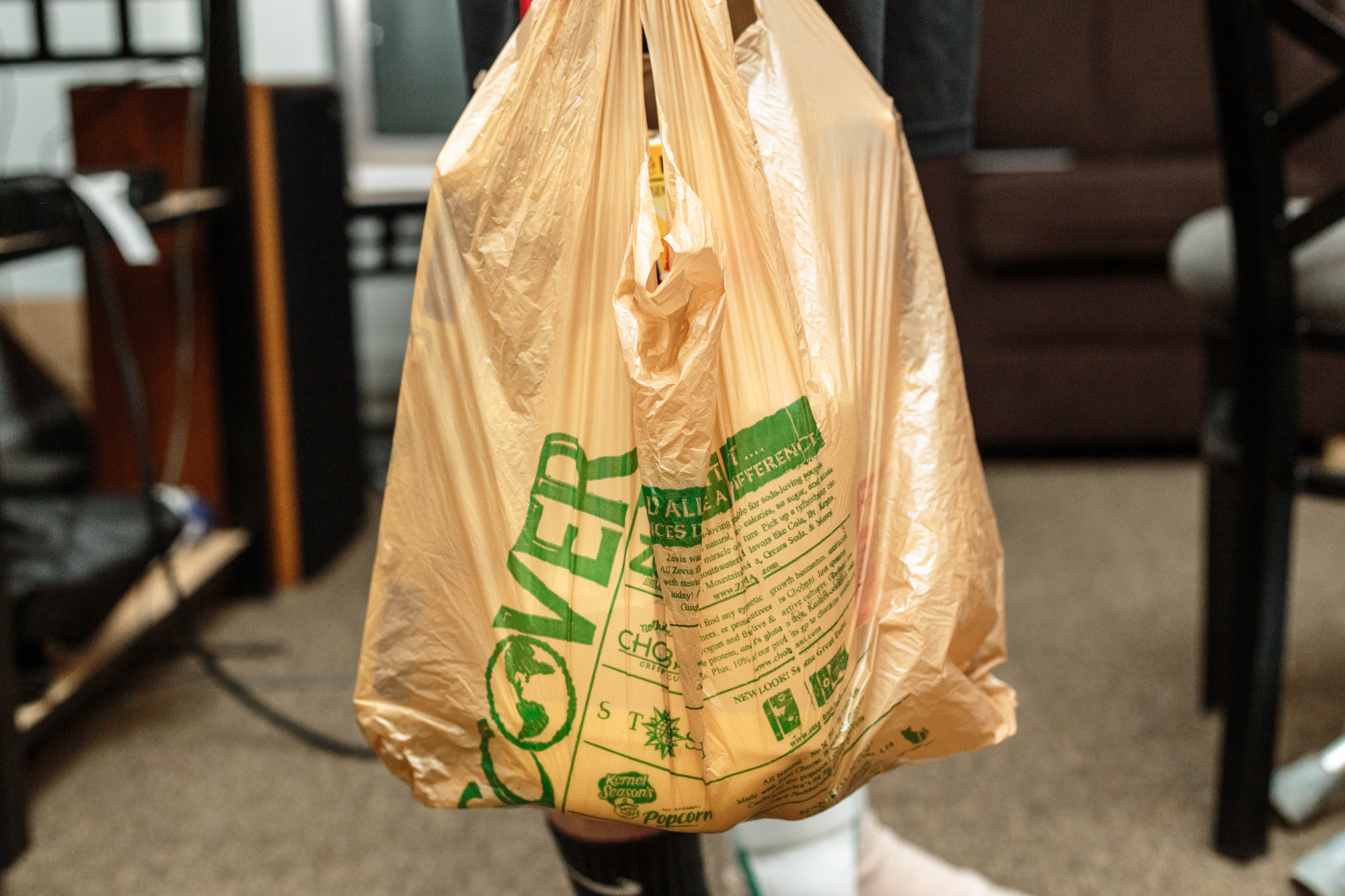The Residence Hall Association is currently pursuing “very rough” ideas on how to cut down on plastic bag use on the campus, including implementing a bag tax or increasing efforts to publicize the discount students get if using a reusable bag, said Dana Rodriguez, chairwoman of the RHA sustainability committee.
To understand students’ current practices involving plastic bags, RHA conducted an informal, observational study this month with 10 hours of study at different convenience store locations around the campus, said Samantha Bingaman, a junior environmental science and policy major.
In the study, RHA members asked members of the university community who took plastic bags why, how and in what ways they use the bags. RHA members gathered that most students didn’t use the plastic bags, Rodriguez said, leading them to conclude that it was realistic to push for the university to move from plastic bags to the reusable option.
This kind of research helps push initiatives the group is trying to start, Bingaman said.
“We want to be able to map how students are using plastic bags, and the best way to do that and understand that behavior is by observation, watching and surveying,” said Bingaman, who helped conduct the research.
Rodriguez said the amount of plastic bag litter she saw on the campus inspired her to investigate ways of reducing the amount of plastic bags used at the university. At the beginning of this semester, the RHA sustainability committee looked into ways to eliminate plastic bag use completely.
After consulting with Dining Services, however, the committee concluded it was not realistic, Rodriguez said.
“We explored the idea of banning plastic bags and eventually came to the conclusion that that wasn’t a good option,” Rodriguez said. “We’d be limiting options for students because if you really need a plastic bag, you should be able to have one.”
For the past three years, Dining Services, RHA and the Student Governemnt Association have worked together in an effort to integrate more reusable bags into the culture of the university, said Allison Lilly, Dining Service’s assistant director for new initiatives.
Dining Services wants “to take the foundation that we have created and build on that, so get a lot more enthusiasm about using reusable bags, about taking advantage of the discount program and getting students psyched up about these things,” Lilly said. “We’re excited to see where it goes next.”
The real avenue to achieve these goals is to educate people, said Maria Lonsbury, a project specialist in the office of the vice president for student affairs. Members of the university community ultimately need to begin “changing [their] behavior a little bit, to not just expect [a plastic bag] all the time,” she said.
It is now practice for convenience shop staff members to ask students if they need a plastic bag as they check out, instead of just giving them one, which Lonsbury said provides a moment for people to consider whether they actually do.
“There are times when, yes, people need bags, but it doesn’t need to be automatic, all the time, mindlessly,” Lonsbury said. “The idea here is always about education, and people really knowing more about what they’re doing, their behaviors and how it impacts our greater community.”
The next step will be to draft legislation based on research data for next year when Dining Services switches to anytime dining, which will “have a tremendous impact on how our ideas will actually play out on campus and in implementation,” Rodriguez said.
Because plastic bags cannot be recycled on the campus, it is important to focus on how to reduce and reuse, said junior environmental science and technology and government and politics major Maya Spaur, director of the SGA sustainability committee.
“Everybody uses [plastic bags] or has a need for them, so if we can teach them to use other things instead, then that really hits the whole sustainability point home,” Spaur said.



